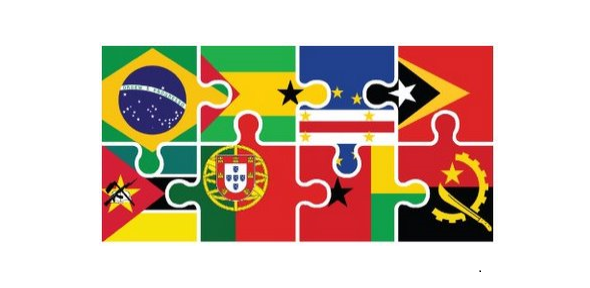Please be aware that places on this paper are normally restricted. Only limited numbers of PIB/PII students (MML and HML) are able to take this paper.
[This paper was previously called Introduction to the Language and Literature of Portugal, Brazil and Portuguese-speaking Africa, and will be available to both PIB and PII students in 2023-24.
Portuguese is the fifth most widely-spoken world language. It is the official language of Portugal, Brazil, Angola, Mozambique, Guinea-Bissau, Cape Verde and S. Tomé e Príncipe, and is spoken by some 200 million people worldwide. Within the Romance languages, it bears close affinity to Spanish, and also to French and Italian. Any student within the MML Faculty, however, is welcome to choose this paper whatever her/his other language combinations, and many have done so with success.
The paper is divided into two separately taught parts: PG3L and PG3C
The PG3L (language) course is designed to take you from scratch to A-level standard in an academic year.
Preparation for PG3C
Paper PG3C is designed to give you an introduction to the main areas of study in the Portuguese Tripos, allowing you to sample literature, art and film, from the sixteenth century to the present, and from Portugal, Brazil, Angola and Mozambique. The paper offers language classes aiming at providing you with a reading knowledge of the language and thus allowing you to work on a variety of texts (novels, short stories, plays, poetry, the fine arts and film) and topics that will give you a solid grounding in Lusophone studies whilst making you aware of its richness and complexity. PG3C also offers you the chance to gain a good grasp of theoretical tools as well as the historical and political background to literary, artistic and cinematic texts, enabling you to work in depth with this material whilst gaining a wider perspective on the cultures of the Portuguese-speaking world.
This paper is available to all MMLL students at Part IB and Part II except those taking the Portuguese Tripos. Please note: no candidate may offer more than one of Papers GR3, PG3, SP10, SL13, or SL9 in any one year. Students taking this paper at Part IB have the option of going to a Portuguese-speaking country on their year abroad and/or taking further papers on the Portuguese Tripos at Part II.
During the preceding summer vacation you are strongly encouraged to read as many of the texts from the reading list as are available in translation, watch the relevant films and acquaint yourself with the work of the artist included in the paper. When you begin the course you are expected to read all the texts in the original and give evidence of having done so in supervision essays and in the exam.
You can purchase texts and films from local bookshops (Heffers and Waterstone's are aware of our reading lists), or from online book-sellers like Amazon, WOOK, Livraria Leitura, Livraria Cultura, FNAC, Alibris, or Abe Books. The works of Paula Rego can be viewed on Google images as well as on the website of Marlborough Fine Art, the Saatchi Gallery and the museum Casa das Histórias in Portugal, which is dedicated entirely to her work. Margarida Cardoso’s film, A costa dos murmúrios is available on YouTube.
A good performance in this paper at Part IB will enable students wishing to take a Portuguese paper at Part II (PG4: Self, Family, Nation and Empire in Lusophone Culture;) to do so.
Preparation for your language classes (PG3L)
As the course is very intensive and we need to cover a lot of material in just 20 teaching weeks, we strongly encourage you to work through one of the following options before the academic year:
- "Modern Brazilian Portuguese Grammar”, by John Whitlam, Routledge: Chapters 1 to 9 and 15 from the Practical Guide and the Workbook OR
- “Portuguese, An Essential Grammar”, by Amélia Hutchinson and Janet Lloyd, Second Edition, Routledge: Chapters 1 to 4; 5.1, 5.2, 5.3; 6 and 7; as a complement, please complete the exercises on "Vamos lá começar" (pages 1-88), by Leonel Melo Rosa, Edições Técnicas Lidel.
Please use the key to correct your answers. Don't feel that you have to be limited by this only, go as far ahead as you can. Please see Recommended bibliography and Online Resources below. In this paper we work with a combination of books, class handouts and online materials, but "Ponto de Encontro: Portuguese As a World Language", Second Edition, by Clemence Jouet-Pastre, Pearson, will be our main textbook.
Please also refer to:
- Recommended Bibliography
- Online Resources
Please see PG3's Moodle page.
Topic 1: The Politics of Empire and Nation. This topic gives you the opportunity to explore the impact of the Portuguese maritime empire and its aftermath in the culture of Portugal, Brazil and Portuguese-Speaking Africa.
Topic 2: Gender, Sexuality, Love. This considers the politics of gender and family relations with or without reference to the wider political status quo.
Topic 3: Forms of Otherness. This topic enables you to discuss aspects of difference and dissent in matters regarding gender, religion and race.
Topic 4: Authority and Violence. This invites you to examine questions of authoritarianism, alienation and marginality as they feature in texts in the Portuguese-Speaking World.
2023-24 students, please refer to the Moodle site and to the PG3 Lecture List for further information.
Set texts, films and works of art: as above
This two-part paper (PG3L and PG3C) includes two hours per week of language instruction throughout the year and one or more lectures per week in Michaelmas and Lent Terms. Fortnightly supervisions for PG3C begin usually in week 3 of the Michaelmas Term and continue in the Lent and Easter Terms. During Lent and Easter terms a series of 4 language supervisions will also be arranged to help you prepare for the language component of the examination. For PG3C only 4 essays need to be written throughout the year (one at the end of Michaelmas Term, one at the division of the Lent Term, one at the end of the Lent Term and one on the first day of the Easter Term).
Preparation and assessment for PG3C
The examination on the literature and cultural component will offer you a choice of essay questions on the cultural texts studied (Literature, Film and the Visual Arts). The PG3C examination is divided into two sections. One question must be chosen from each section. Section A offers questions focusing on individual authors, films and artists. Section B offers comparative questions based on the topics outlined below. Questions in this section must cover at least two authors/film/artist.
You must not repeat material substantially. Overlap between essays will be penalized. The essay questions are based on key topics (see below), requiring comparative readings that may cut across boundaries of nationality (Portugal, Brazil, Lusophone Africa), period (from the nineteenth century to the present) and cultural form (Literature, Film and the Visual Arts). You will need to cover at least two countries across the exam (although not in each question).
Topic 1: The Politics of Empire and Nation. This topic gives you the opportunity to explore the impact of the Portuguese maritime empire and its aftermath in the culture of Portugal, Brazil and Portuguese-Speaking Africa.
Topic 2: Gender, Sexuality, Love. This considers the politics of gender and family relations with or without reference to the wider political status quo.
Topic 3: Forms of Otherness. This topic enables you to discuss aspects of difference and dissent in matters regarding gender, religion and race.
Topic 4: Authority and Violence. This invites you to examine questions of authoritarianism, alienation and marginality as they feature in texts in the Portuguese-Speaking World.
Past examination papers: https://www.vle.cam.ac.uk/login/index.php
Since this paper has now changed format, although past papers give you an idea of past comparative questions, for examples of the type of question in Section A please refer to this year’s specimen paper.
Prof. Manucha Lisboa (Co-ordinator) | |
Dr. Vivien Kogut de Sá (PG3C and Portuguese Language supervisor) | |
Mr Felipe Schuery (SLTO, re: PG3L Portuguese Language Classes) |




